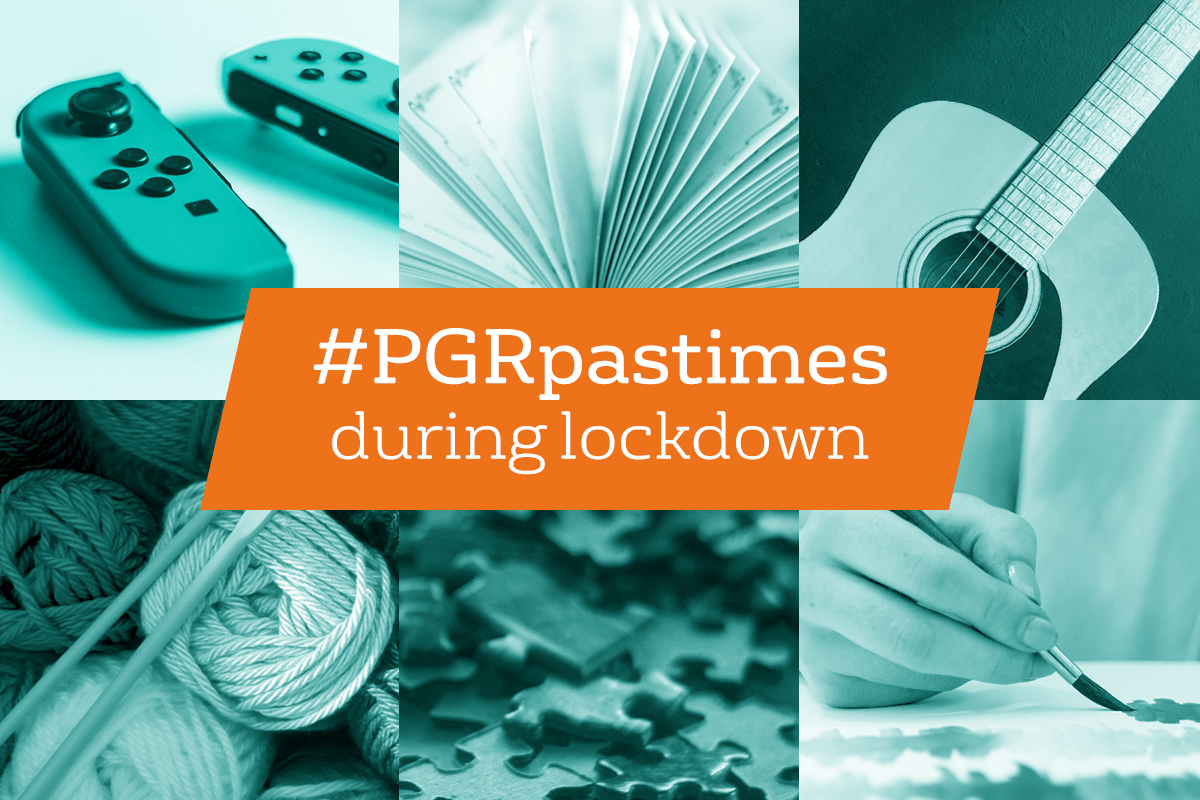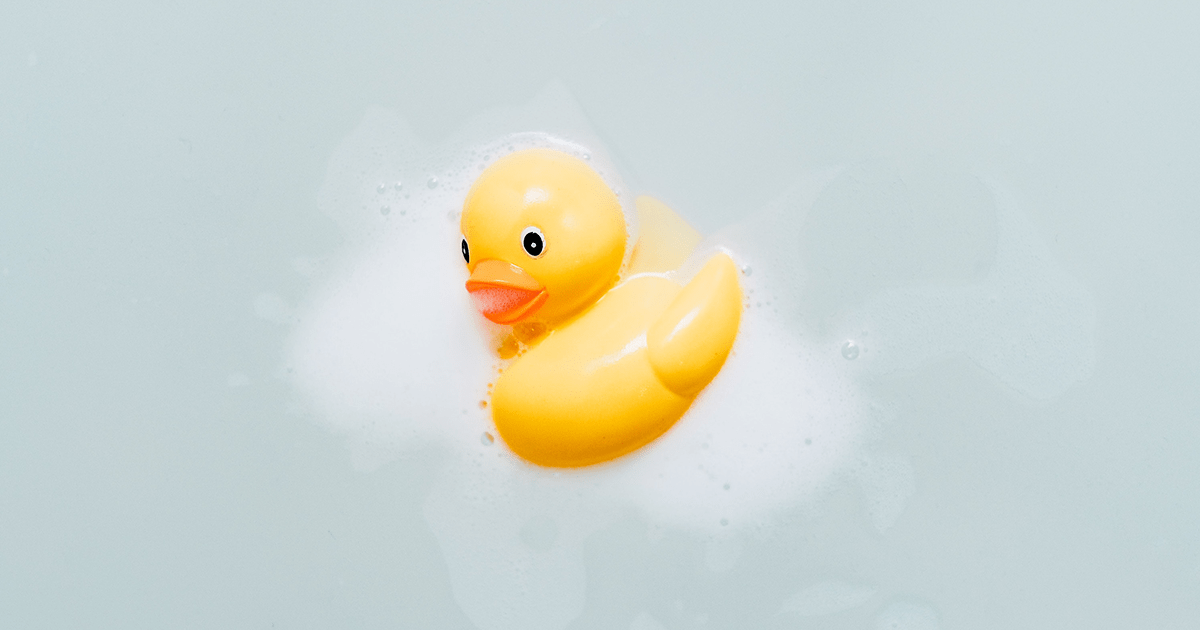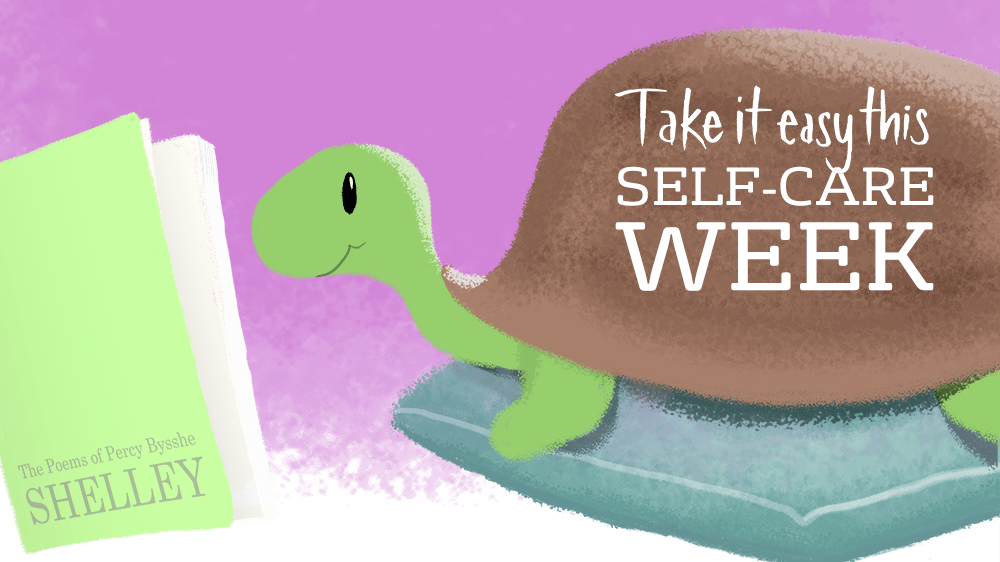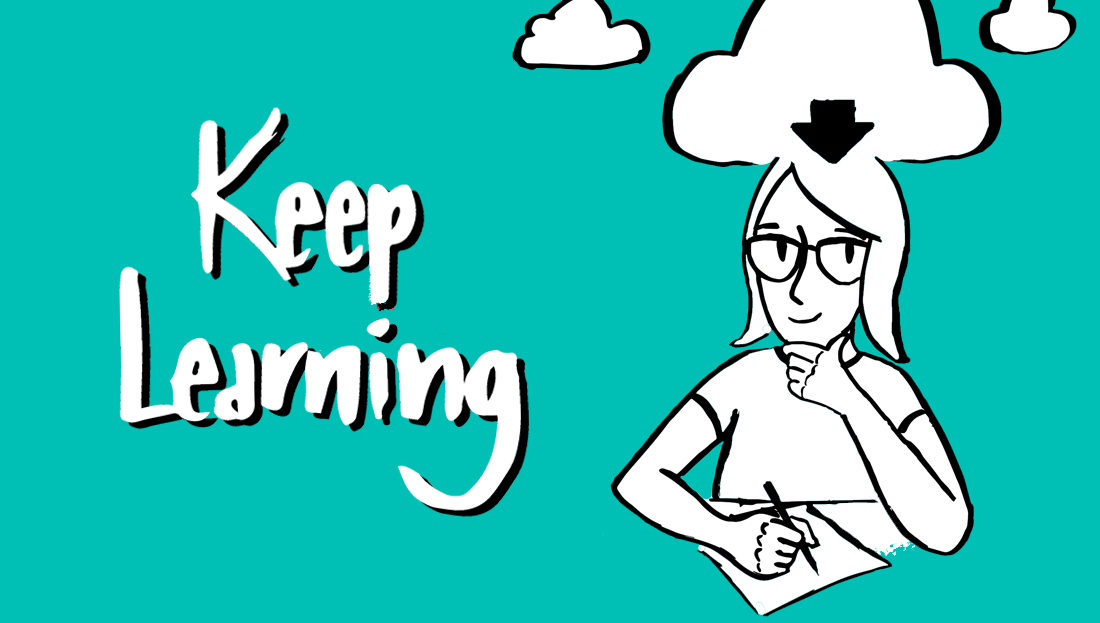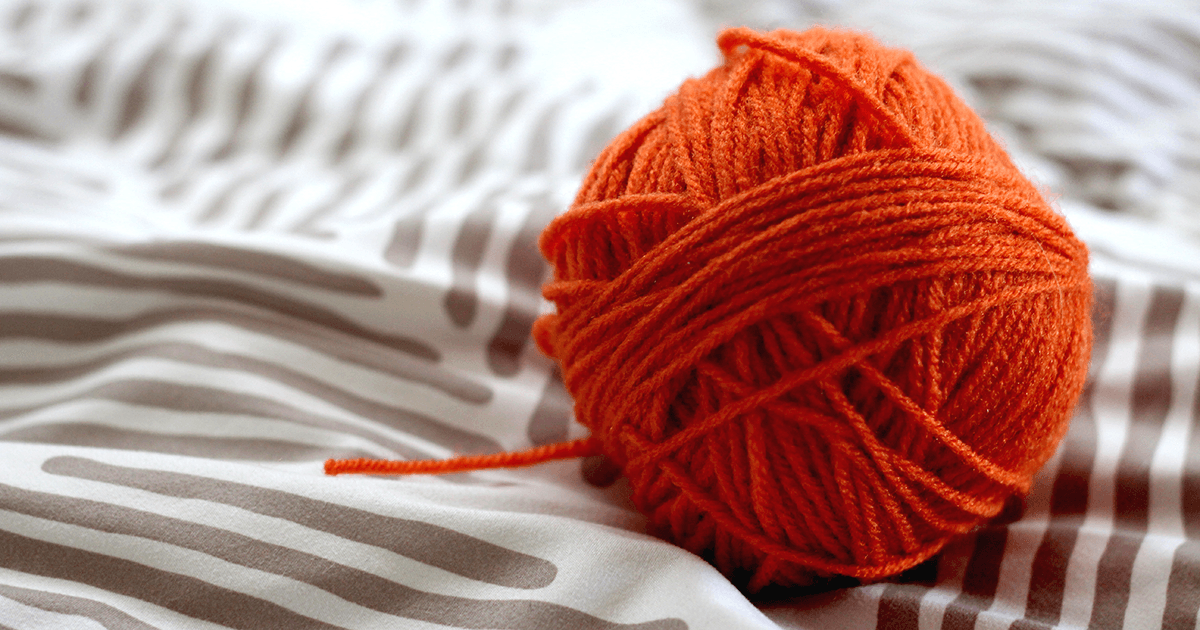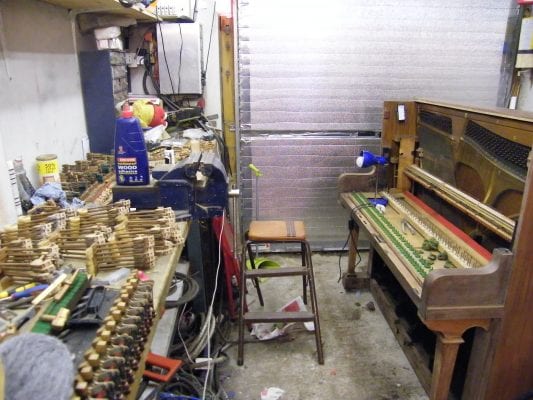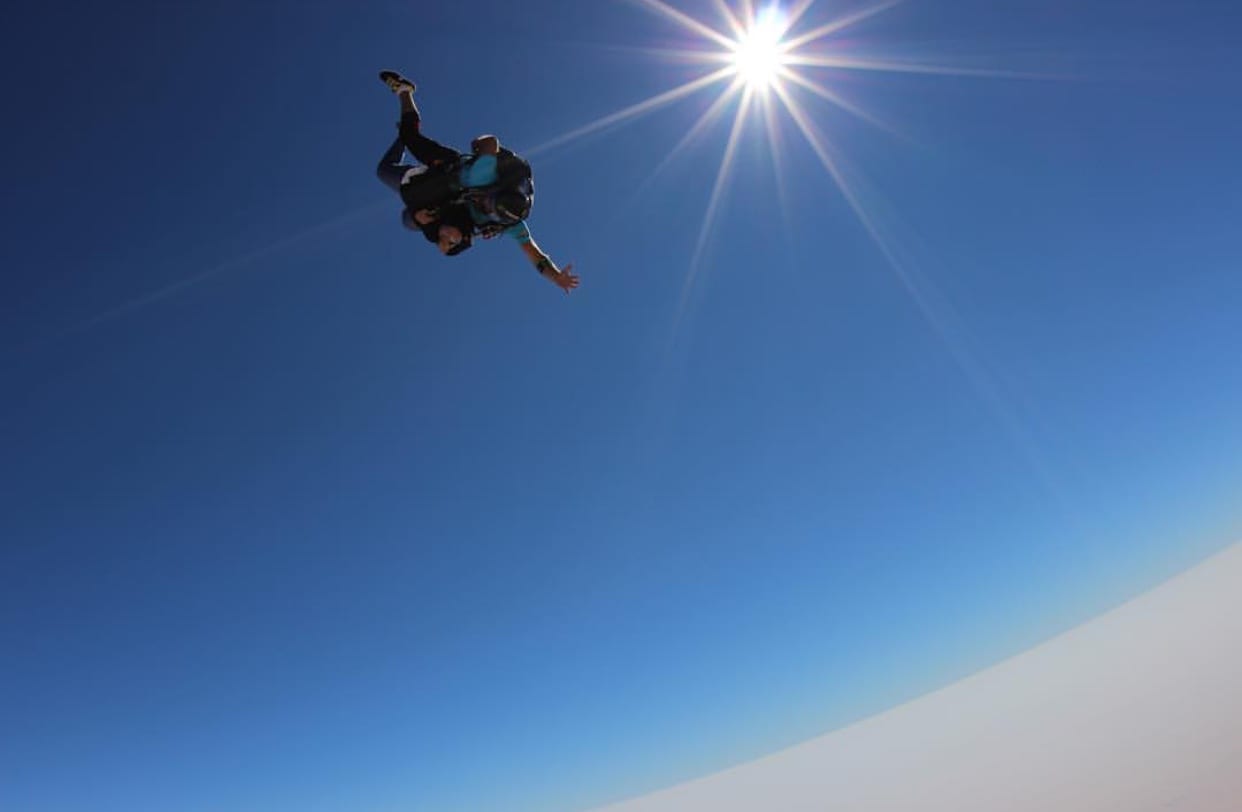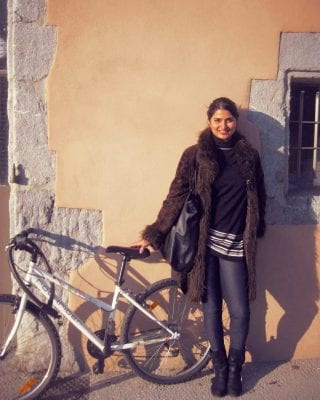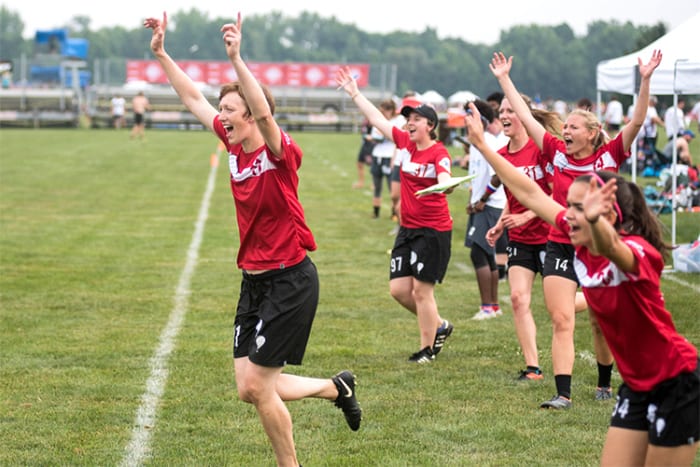
This week, our ‘5 Weeks of Wellbeing’ theme is ‘Be Active’. To kick us off, Sarah Garner, a final-year PhD student in the Bristol Dental School, tells us how she balanced the demands of her PhD with fitness training for the World Ultimate Frisbee Club Championships — and how that helped her get fresh perspectives.
October 2017: I’ve just started the final year of my PhD. Whilst I’m not in dire straits, the lab work isn’t going as well as I’d hoped, and I definitely feel like I’m behind where I want to be. I’d had good intentions to write up as I went but this quickly fell by the wayside. So I feel the pressure is on, and time is limited. I have a new job lined up for next October and the start date is non-negotiable. But it’s fine, because I’m just going to spend the next year really focusing and putting in the hours on the PhD. Got a plan. Phew. A few 12 hour days in the lab and I’ll be fine.
November 2017: I find out that my club Ultimate Frisbee team has just qualified for the World Ultimate Club Championships in the USA in July 2018. I’ve played with this club for 12 years, captained it and coached. This is the culmination of a huge amount of hard work. I should be excited, right? Bubbles of excitement are spreading through my team. I really want to get excited about it too — there’s nothing like the thought of playing a world championship with a bunch of great friends to get the adrenaline flowing! But, having played at international tournaments before, I also know what’s involved in the preparation: a lot of fitness training! Two weights sessions a week, a conditioning session and anything from 2-4 team training sessions as well. Plus throwing practice, stretching, rolling and yoga. Oh, and a 5k run here or there if you fancy squeezing it in. They say it’s important to ‘stay active’ whilst you’re doing a PhD, but this is possibly a bit overkill.
How can I possibly fit this in around my PhD?
In my heart, I knew I desperately wanted to play, and I also wanted to be at my fittest and strongest possible, so I could play my best. So I’d need to put in the hours doing the fitness. I also knew how physically and mentally tired that can make me feel — not exactly conducive to high level PhD research and writing! So what to do?
I spoke to friends, teammates, my partner. I knew what I ‘should’ do — forget frisbee for once and concentrate on the PhD. I didn’t speak to my supervisors, as I thought I’d knew what they would say — it’s up to you, but the more time you put into the PhD this year, the better. I was torn between my head and my heart!
So what did I do?
I went to the world championships with my team. I reasoned that, if it was what I really wanted to do, I would make time for it, and it would be a useful way of switching off at the end of a long day in the lab.
How was it?
Really, really tough. The fitness programme we had was designed to make us ‘peak’ at the time of the championships, but we were told that up until then chances are we’d feel exhausted, ache in funny places, and be totally sick of frisbee. And we did.
How did I do it?
Every Monday morning, I sat down and looked at my week and decided when and where I could fit in each of the sessions I needed to. I did gym sessions before work twice a week. Sometimes it would really wake me up for the day, and other times when I sat at my desk by 9am I’d feel like I wanted to sleep. That’s where my good friend strong coffee came in.
In the summer we trained as a team twice a week after work. I usually managed to make it on time, but I made it clear that sometimes I wouldn’t be able to leave the lab bang on 5pm and I might be late. My teammates were very understanding and supportive. The other sessions I did ad hoc in evenings or at weekends when we weren’t playing tournaments. And if I missed the odd session for whatever reason, I didn’t beat myself up.
It was really hard to balance training for sport at a high level with trying to complete a PhD. But I also think it kept me sane; it gave me something else to think about and strive for, that had a definitive end point — unlike a PhD, where there’s always more you can do and so you never get that satisfaction of ‘I’ve finished’ until you’ve done the Viva.
Seeing all of my friends train and prepare around me whilst I wasn’t would have given me serious FOMO and probably would have distracted me enough that I would have lost almost as many hours to thinking about what could have been as I would have spent doing the training in the first place!
The final year of a PhD is never easy. Whilst I took the ‘keeping active’ part to the extreme, what I realised was that doing something that you enjoy — whether that’s a walk around the park at lunch or travelling overseas to play a week-long world championship, or anything in between — does help to keep you sane, as it allows you to think about something other than research, just for a bit. PhDs aren’t the be all and end all, and, whatever anybody tells you, the world will keep turning regardless of your findings.
Doing something that allows your brain to get away from the PhD for a bit is so important and will help you look at it with a fresh pair of eyes on your return. Sometimes I find getting the endorphins flowing really helps me kick start some lab work or writing. Find something that works for you and schedule it into your week — it’s as much a part of doing a PhD as being in the lab or library!
Want to get active yourself? Here’s the full list of activities that we’re holding as part of our ‘Be Active’ week. All activities take place in the PGR Hub, on the 1st floor of Senate House, unless otherwise stated.
Competition! Whether it’s jogging, juggling or jujitsu, we want to know how you take active breaks from your research degree. One random comment will be chosen at 5pm on Friday 1 March, and its author will win a free session with a personal trainer at the University of Bristol Sport Centre. (Please note that the competition is open to current Bristol PGRs only. To take part, see our posts on Facebook or Twitter.)
And remember to pick up a free 5 Weeks of Wellbeing zine from the PGR Hub! Collect a sticker for an activity each week and you’ll be entered into a prize draw — and you could win a wellness hamper worth up to £100!
